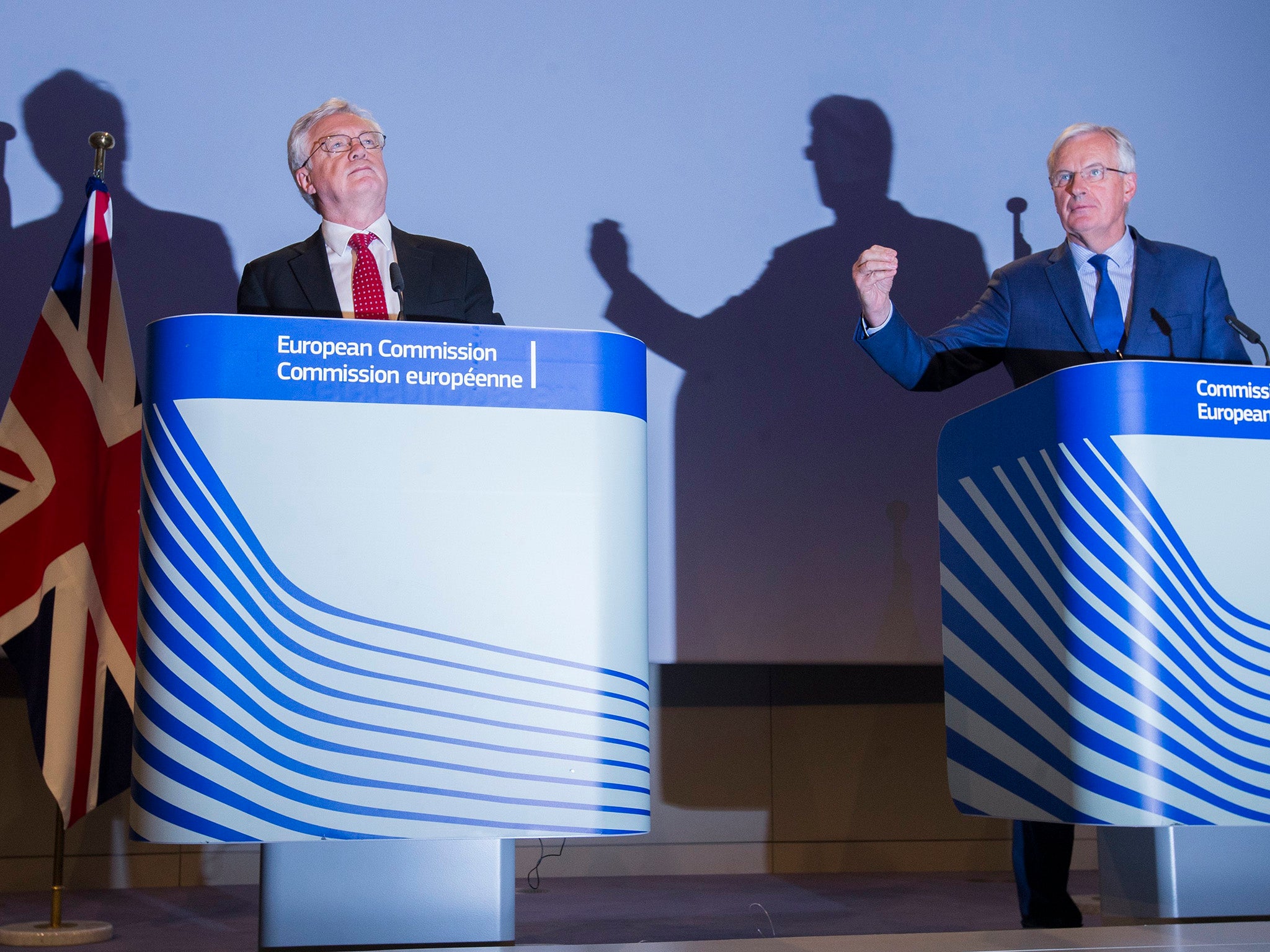Your support helps us to tell the story
From reproductive rights to climate change to Big Tech, The Independent is on the ground when the story is developing. Whether it's investigating the financials of Elon Musk's pro-Trump PAC or producing our latest documentary, 'The A Word', which shines a light on the American women fighting for reproductive rights, we know how important it is to parse out the facts from the messaging.
At such a critical moment in US history, we need reporters on the ground. Your donation allows us to keep sending journalists to speak to both sides of the story.
The Independent is trusted by Americans across the entire political spectrum. And unlike many other quality news outlets, we choose not to lock Americans out of our reporting and analysis with paywalls. We believe quality journalism should be available to everyone, paid for by those who can afford it.
Your support makes all the difference.Britain leaving the European Union will take longer than had initially been thought, the President of the European Commission has said.
Speaking in Luxembourg, Jean-Claude Juncker said the UK would “have to pay” the Brexit divorce bill before negotiations could move onto the next phase.
The president’s comments come after EU negotiators warned that talks on the payments had reached a “disturbing deadlock” this week.
“The British are discovering, as we are, new problems every day. That’s the reason why this process will take longer than initially thought,” said Mr Juncker.
“We cannot find for the time being a real compromise as far as the remaining financial commitments of the UK are concerned. As we are not able to do this we will not be able to say in the European Council in October that now we can move to the second phase of negotiations.
“They have to pay, they have to pay, not in an impossible way. I’m not in a revenge mood. I’m not hating the British.”
After Theresa May triggered Article 50 in March the UK has two years to negotiate a departure settlement with the EU before it crashes out of the bloc in March 2019.

Negotiations so far have been slower than expected, with hopes that the UK would reach a key milestone by the time of the European Council meeting next week now evaporated.
The EU is insisting that both sides make headway in settling “separation” issues – what will happen to the Northern Ireland border, the divorce bill, and EU citizens living in the UK – before trade talks can take place.
The UK, however, believes this framework is too strict, and in particular wants to discuss transitional arrangements before these issues are considered.
On Thursday Michel Barnier, the EU’s chief negotiator, said he did not believe sufficient progress had been made in the three areas to proceed to trade talks. The next possible point “sufficient progress” could be judged is in December, when a further European Council meeting is set to take place.

Join our commenting forum
Join thought-provoking conversations, follow other Independent readers and see their replies
Comments